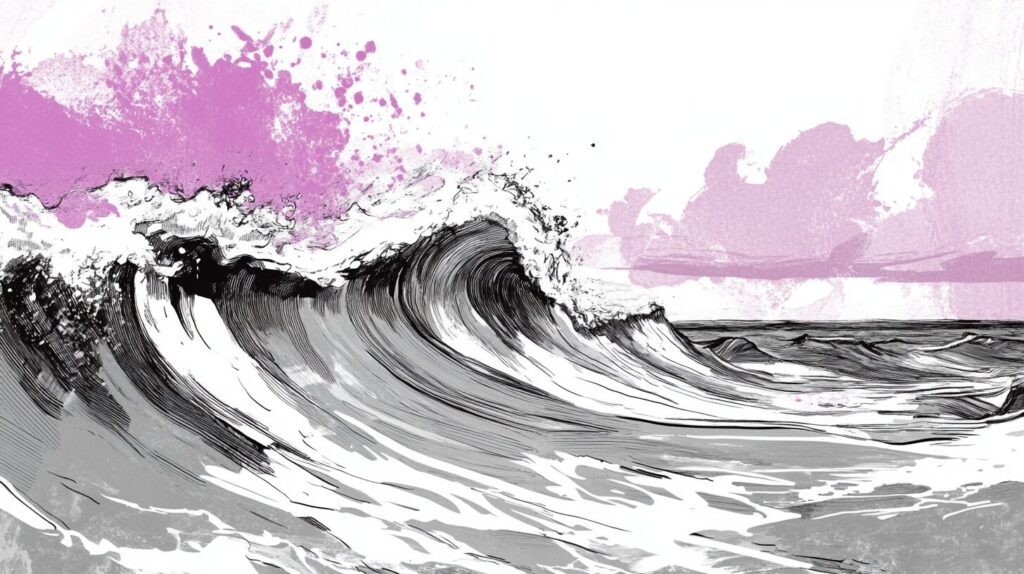You could argue that the most precious resource we have is time. It’s finite, fleeting, and irreplaceable. But wrapped up in how we spend our time is something even more powerful: our attention.
In today’s world, attention isn’t just a resource—it’s the driving force behind a new economy. Welcome to the Attention Economy, where our focus has become the most valuable commodity on Earth.
The Shift from Oil to Attention
For decades, oil reigned as the most valuable resource. It powered the industrial revolution, fueled economies, and built empires. But in a digital world, the power dynamic has shifted. Today, it’s not oil companies drilling for value—it’s tech companies mining for your attention.
Consider this:
- In 1980, oil companies made up ~25% of the S&P 500’s value. Today? They account for just 5%.
- The average person spends ~7 hours a day on a screen—more time than most spend sleeping.
- TikTok users alone spend ~95 minutes a day scrolling, which is more time than most spend eating.
- Including taps, swipes, and clicks, we touch our phones ~2,600 times daily.
Attention is now the currency of the digital age. And the big winners? The tech giants, who have built trillion-dollar empires by extracting it.
Big Tech’s Domination
The companies leading the Attention Economy—Google, Meta, Amazon, Apple, and others—are worth a staggering $12 trillion combined. That’s more than the GDP of China.
Here’s how they do it:
- Unpaid Labor: Platforms rely on us to create their content for free. Every tweet, Instagram post, or LinkedIn update is unpaid labor that fuels their profits.
- Optimization for Engagement: Algorithms are designed not to inform or enrich but to engage—because engagement keeps us on the platform longer, which means more ads and more revenue.
- Dopamine Hits: Platforms serve up a constant stream of content tailored to keep us hooked. Outrage, scandal, and controversy work particularly well, driving clicks and shares… and selling more ads for Nissans and Chobani yogurt along the way.
As the saying goes: If you’re not paying for the product, you are the product.
The Attention Crisis
This relentless pursuit of attention has created a crisis that goes beyond decision fatigue and burnout. It’s reshaping our culture and affecting our mental health:
- Teen Depression and Isolation: The constant barrage of curated content fosters comparison, leading to feelings of inadequacy and loneliness. Social media has been linked to rising rates of anxiety and depression, particularly among teens.
- Cultural Coarsening: Outrage-driven algorithms amplify divisive and inflammatory content, fueling polarization and eroding civil discourse.
- Erosion of Social Bonds: Endless scrolling replaces meaningful interactions, isolating individuals even when they’re surrounded by others.
For creators and entrepreneurs, understanding these externalities isn’t just important—it’s essential. If your work seeks to earn attention, it must offer something counter to this tide: clarity, connection, and genuine value.
Earning Attention, Not Stealing It
If you’re building a product, sharing an idea, or starting a business, understanding the dynamics of the Attention Economy can make or break your success. The key is to approach attention with empathy and respect. Here’s how:
- Be Generous: Treat attention as a gift. Imagine you’re hosting someone at your home. Would you bombard them with clutter or provide a meaningful experience? Offer something valuable—whether it’s knowledge, entertainment, or inspiration—that leaves your audience better off than before they found you. For example, if you’re a fitness coach, share actionable tips that help people improve their health, not just flashy content to grab clicks.
- Avoid Interruption: Think about the last time you were engrossed in a book or conversation, only to be interrupted by an irrelevant ad. That frustration doesn’t build goodwill. Instead of shouting for attention, create content or experiences that naturally attract interest. A local coffee shop offering free community classes on latte art earns attention by giving, not taking.
- Build Trust: Imagine a friend who’s consistently late or unreliable. You’d stop depending on them, right? The same principle applies to your work. Be authentic, transparent, and consistent. If you’re a writer, ensure your advice is well-researched and honest. Trust is the currency that keeps your audience coming back.
- Focus on Permission: Think of permission as an invitation. When someone opts into your newsletter or follows your channel, they’re giving you a seat at their table. Respect that by being relevant and helpful. For instance, if a nonprofit earns donations through storytelling, those stories should reflect the impact donors care about, not just the organization’s agenda.
A New Way Forward
The Attention Economy has reshaped how we interact with the world. It’s made attention a scarce and valuable resource, one that creators and entrepreneurs must treat with care.
As you navigate this landscape, remember: attention isn’t something you take—it’s something you earn. Lead with generosity, empathy, and respect, and you’ll not only capture attention but also build deeper connections and trust with your audience.
Your Challenge: Reflect on how you’re seeking attention for your projects or ideas. Are you adding value to your audience’s lives, or simply contributing to the noise? Find one way to earn attention more authentically this week and see how it shifts the impact of your work.



